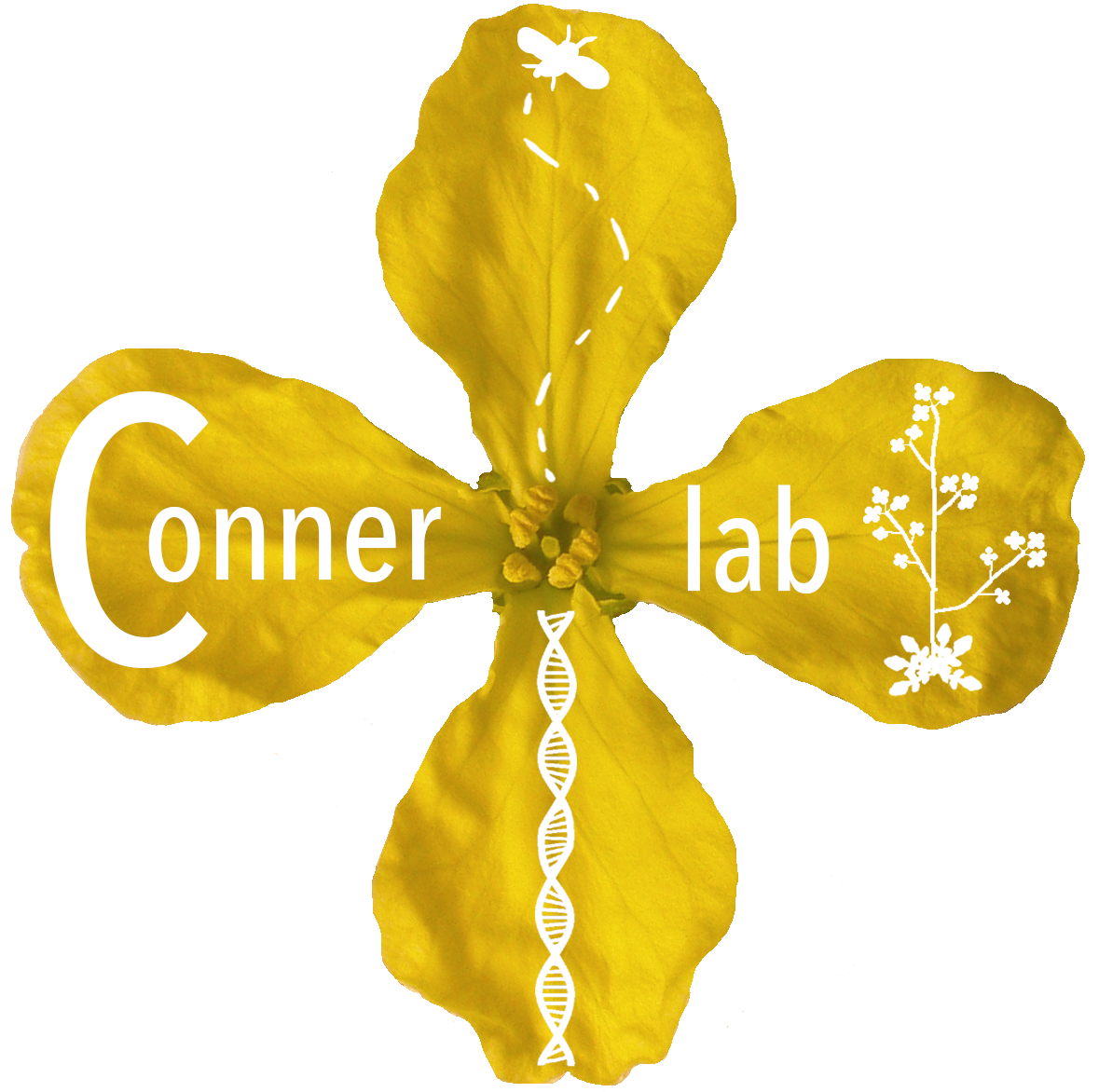Courses
PLB 802 – Evolution Discussion Group (Current theme: Applied evolutionary biology)
A graduate seminar that is also open to postdocs and faculty. Sessions will either center around a talk on ongoing research or discussion of readings from the literature. The goals are to increase interaction among students, postdocs, and faculty with interests in evolution who are scattered across campus and across the state (KBS), to provide a forum for feedback, and to learn more about what different groups are doing.
Past reading lists
2004 – Evo-Devo
2006 – Genetics of Adaptation
2008 – Model systems in evolutionary genetics
2011 – QTL
2012 – Phenotypic selection
2013 – Adaptation to spatially and temporally variable environments
2015 – Distribution of effect sizes at adaptive loci
2016 – Pleiotropy
2018 – Genomic studies of adaptation
PLB 849 – Evolutionary Biology (Syllabi: Overall, Conner’s Half)
Major conceptual, theoretical and empirical questions in evolutionary biology. Readings and lectures are synthesized in student discussions and papers.
ZOL/PLB 440 – Field Ecology and Evolution (Syllabus) [Not offered in 2021]
A field-based, problem solving course designed for advanced undergraduate and beginning graduate students. Students are introduced to conceptual and practical research approaches in ecology and evolution through a variety of field studies on plants and animals. Research projects are co-designed by students and faculty.
Teaching Goals and Experience
I have long enjoyed teaching, and am committed to excellence in all aspects of teaching. I believe that research and teaching are complementary activities: active involvement in research improves teaching and vice versa. I was named to the University of Illinois’ list of teachers rated excellent based on student evaluations three times in six years.
I taught courses in behavioral ecology and introductory biology in graduate school, courses in population biology and ecological genetics at the University of Illinois, and now at Michigan State I coordinate and teach two-thirds of the graduate evolutionary biology course, teach one half of the advanced field ecology and evolution course, and lead a graduate seminar every year. The central theme of all my teaching mirrors the central theme of my research — how do organisms adapt to their biotic and abiotic environments? For many years in these courses I lacked a book that approached evolutionary genetics from a conceptual rather than a mathematical viewpoint, and that focused on questions and examples from natural populations. Therefore, I wrote A Primer of Ecological Genetics (2004, Sinauer) with Dan Hartl (see reviews on the lab home page).
I believe that equal in importance to my classroom teaching is providing diverse students with research experience; to this end, over 75% of the more than 150 undergraduates from a variety of colleges and universities that have done research in my lab over the years have been women, including 25 African-Americans, two Latinas, two with disabilities, and one Pacific Islander. My lab also involves local high school students and teachers in research. The students and teachers often work in collaborative teams to undertake research projects, and present posters on their work at the KBS summer science symposium. Each student is exposed to a variety of projects and learns several techniques. We have required weekly lab meetings for all members of the lab, at which we discuss all of the projects in the lab, solve problems that arise, and read and discuss papers relevant to our research. To date eight undergraduates are co-authors on nine published papers.
I involve my incoming graduate students immediately in collaborative research with me. This enables them to learn my approaches to research, get hands-on experience, and publish papers while they are developing an independent Ph.D. thesis project. I find that most students are fixated on course work when they enter graduate school, which is not surprising given the emphasis in college. While coursework can be very important in graduate training, many graduate students have difficulty making the transition from excellence in the classroom to excellence in research. This is my main goal in their early research experience. To date I have co-authored 24 papers with 11 of my graduate students (only six of these are from their Ph.D work). In 2003 I received the MSU College of Natural Science Outstanding Graduate Advisor award.
